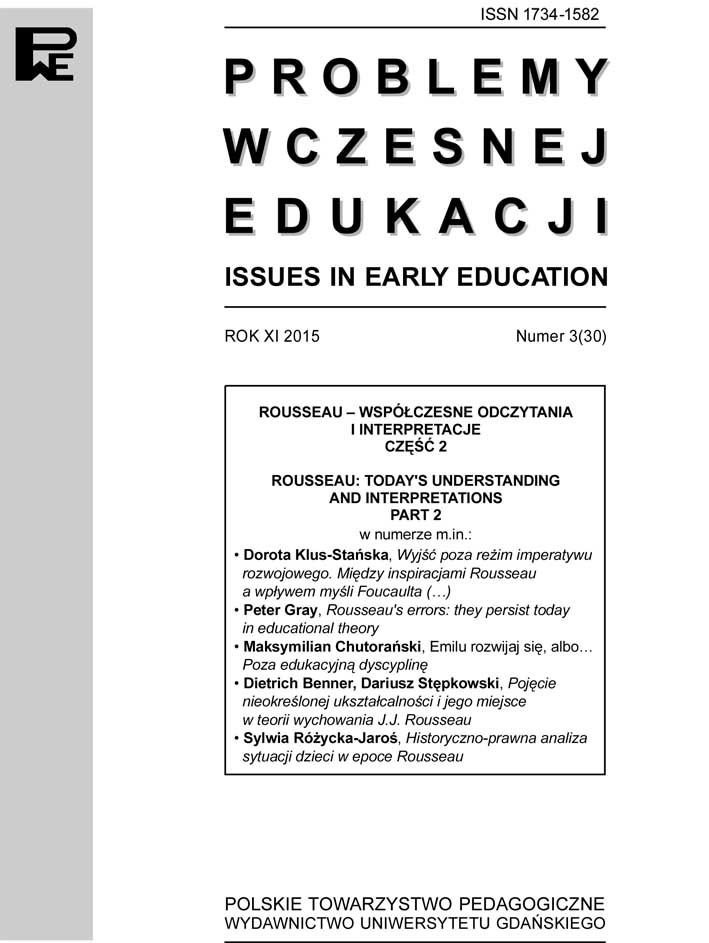Rousseau’s errors: they persist today in educational theory
DOI:
https://doi.org/10.5604/01.3001.0008.9212Słowa kluczowe:
educational theory, progressive education, Rousseau, self-directed education, Sudbury Valley SchoolAbstrakt
In this essay, the author contends that the approach to education described by Rousseau in Émile is not only impractical but is founded on four misconceptions concerning human nature and development. These are (1) the vulnerable-child child fallacy (that children must be protected from learning the wrong things); (2) the stage-of-development fallacy (that children can learn only certain kinds of things at certain ages); (3) the lone-child-in-nature fallacy (that children learn best from interacting physically with nature, not from interacting verbally with other people); and (4) the controllability fallacy (that is is possible to know a child so well as to be able to control, through subtle means, what the child learns). The author’s own research indicates that the ideal environment for children’s natural, self-directed learning is very different from, in many ways opposite to, that outlined by Rousseau.

 Uniwersyteckie Czasopisma Naukowe
Uniwersyteckie Czasopisma Naukowe





